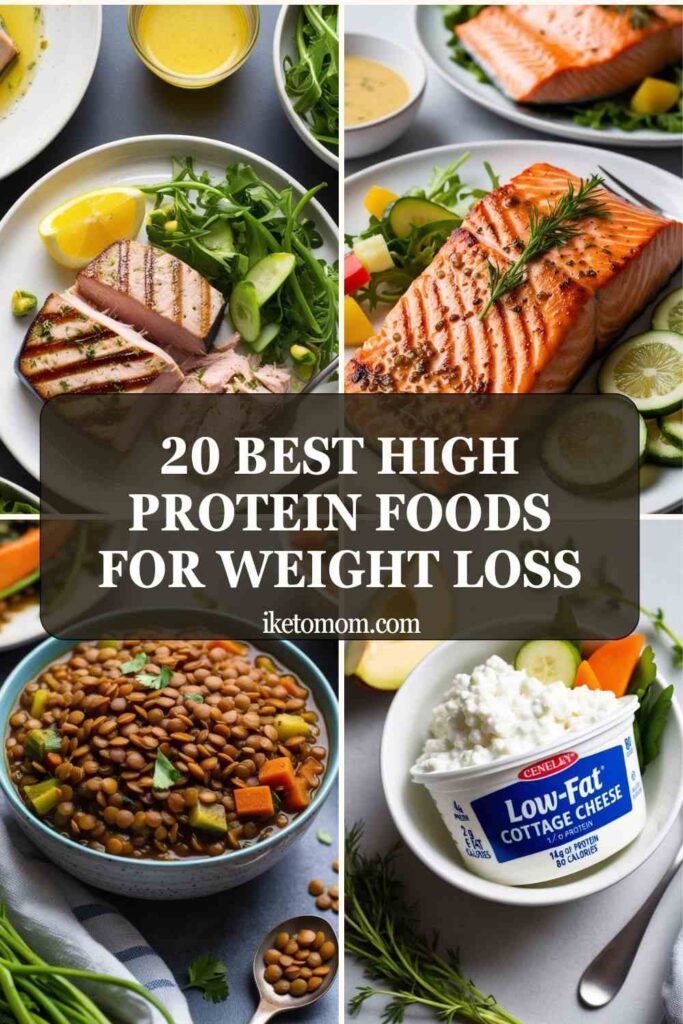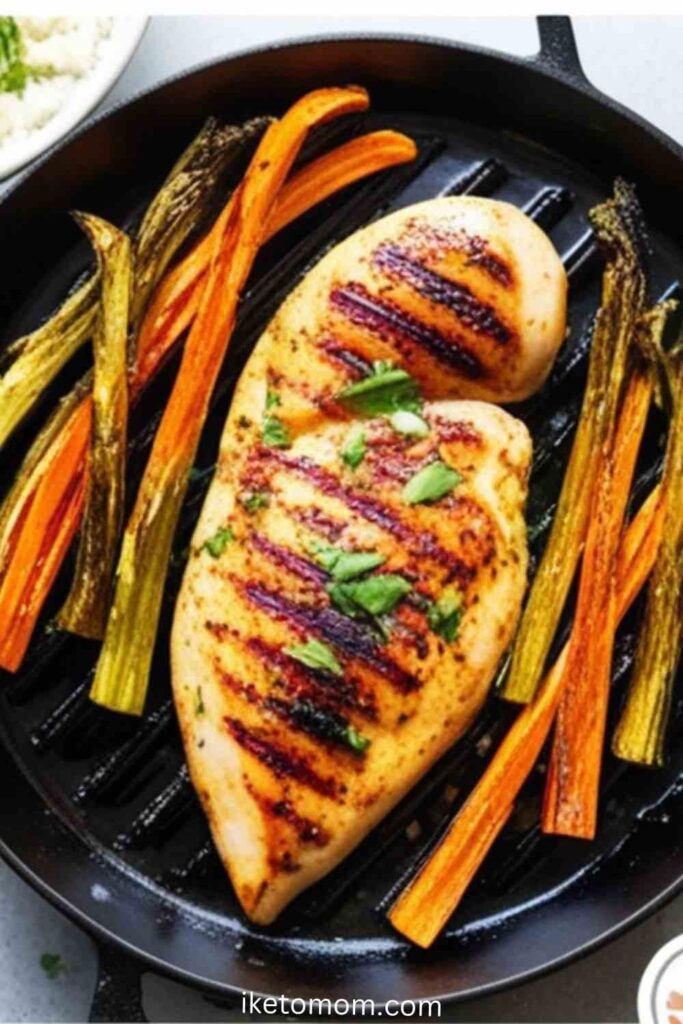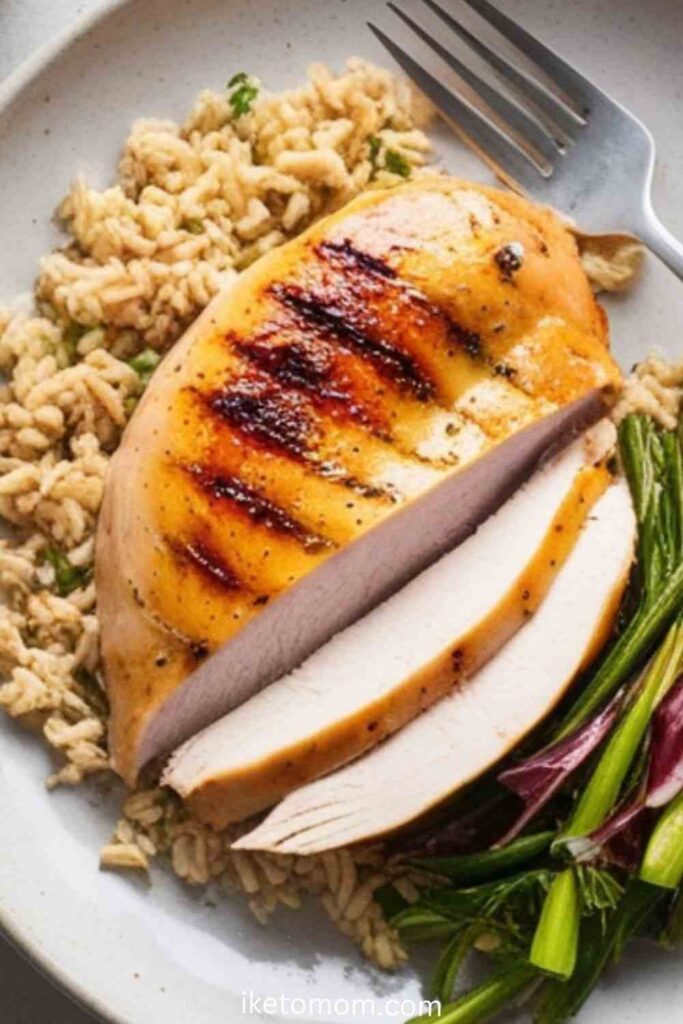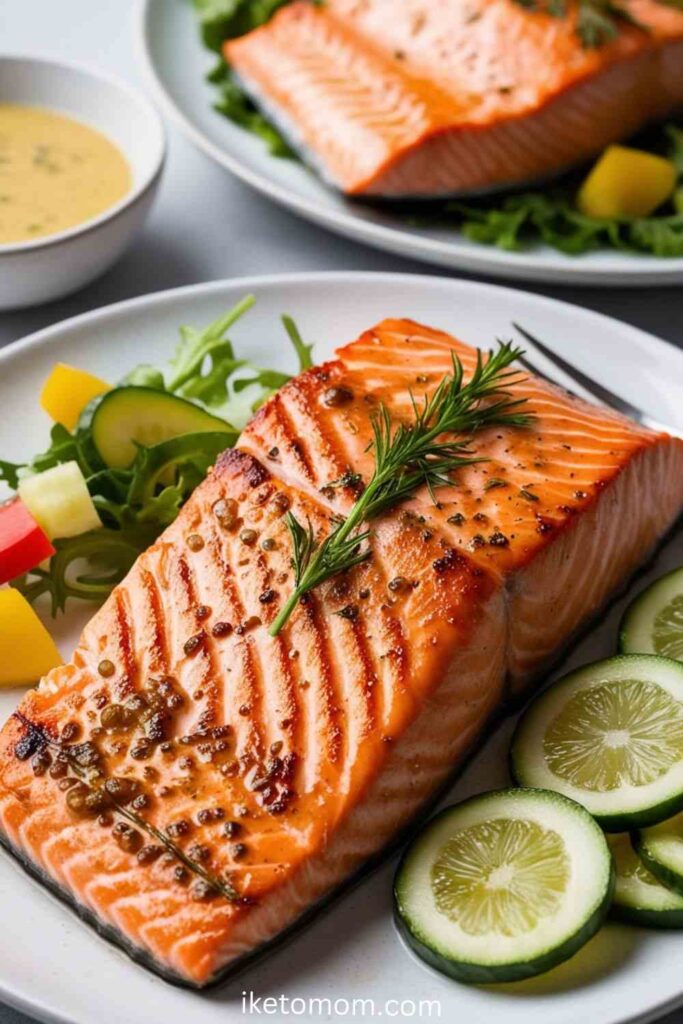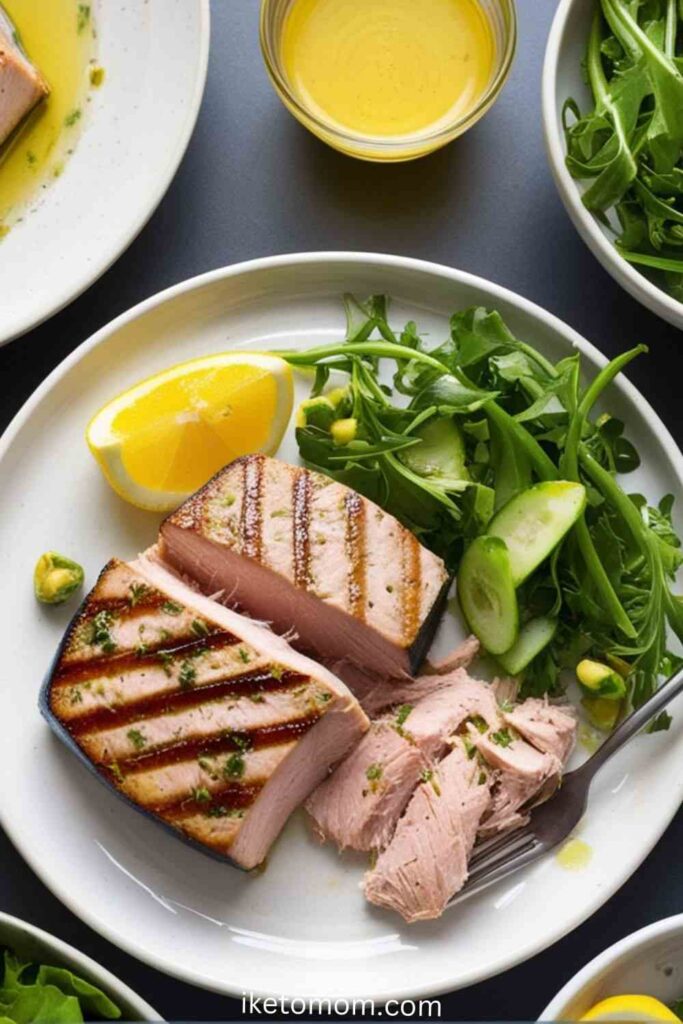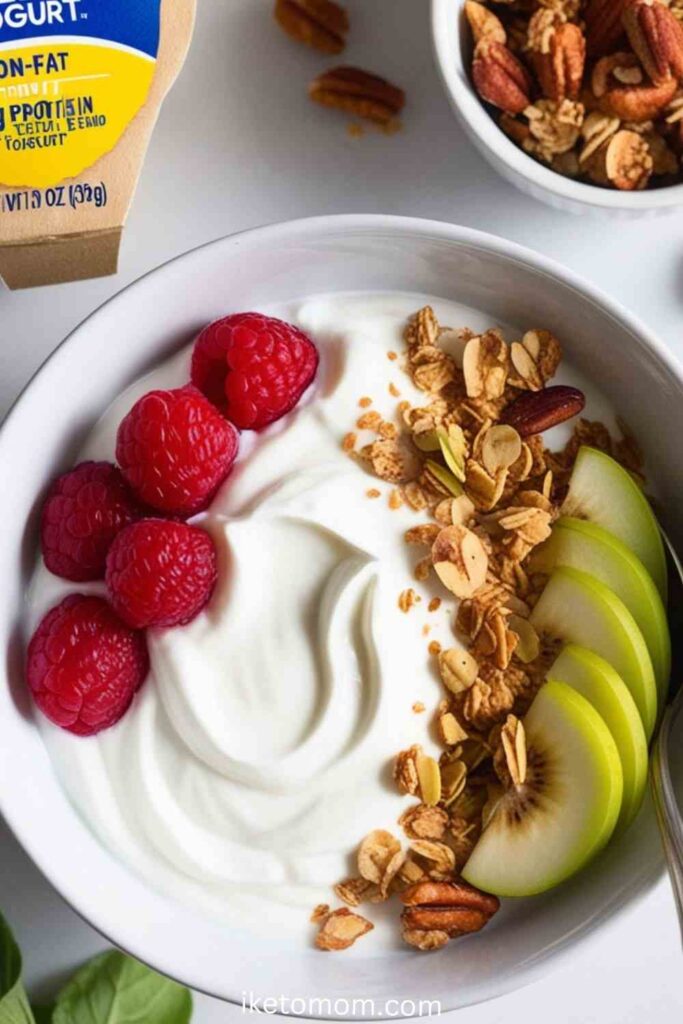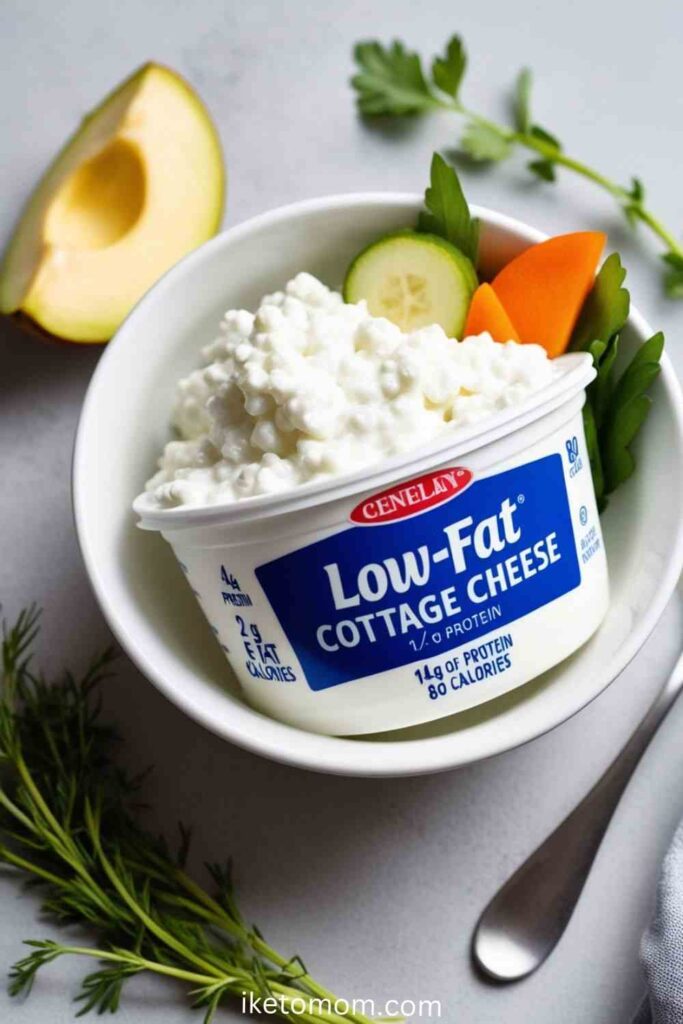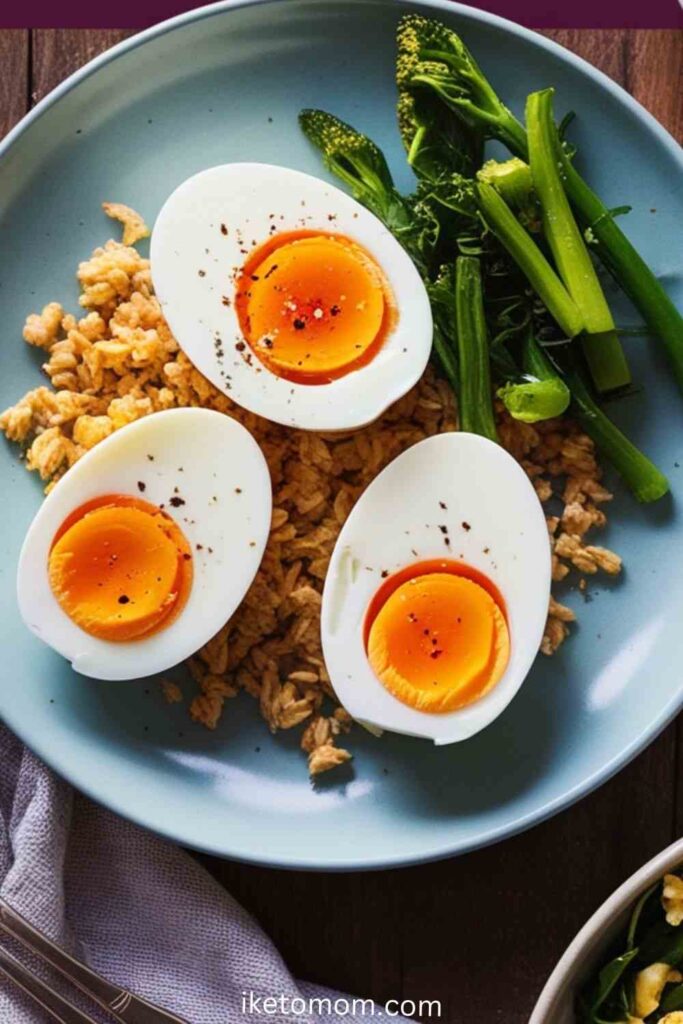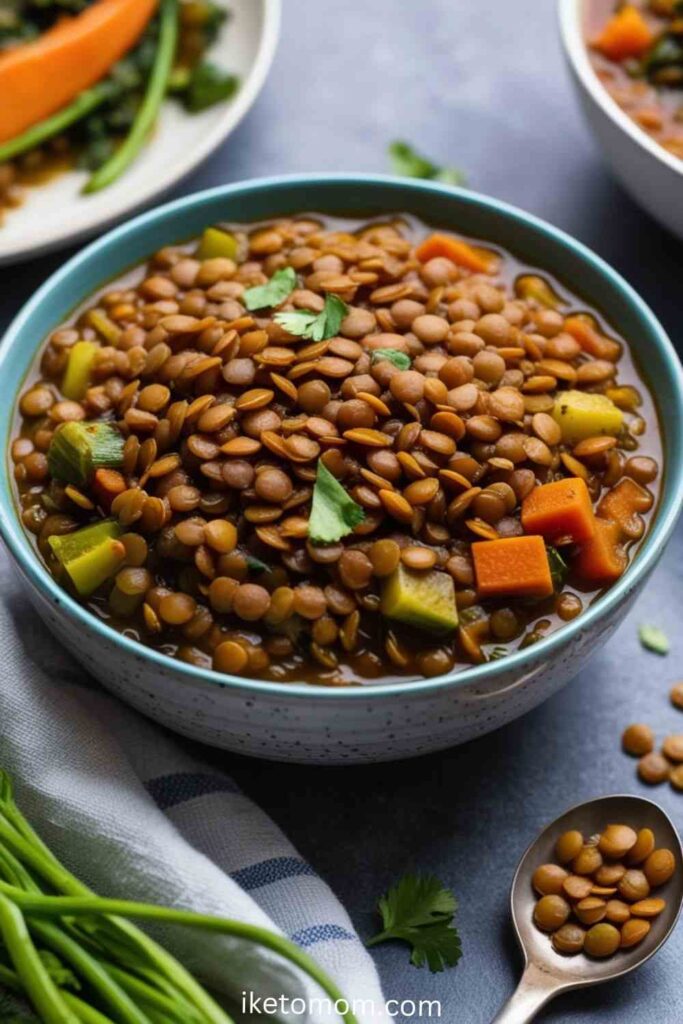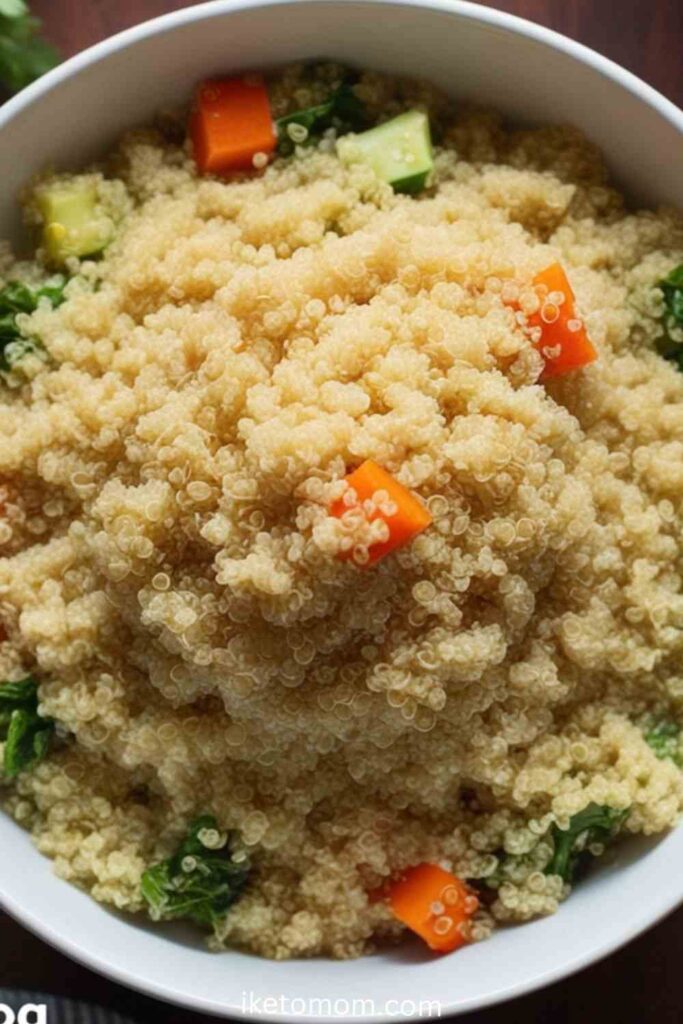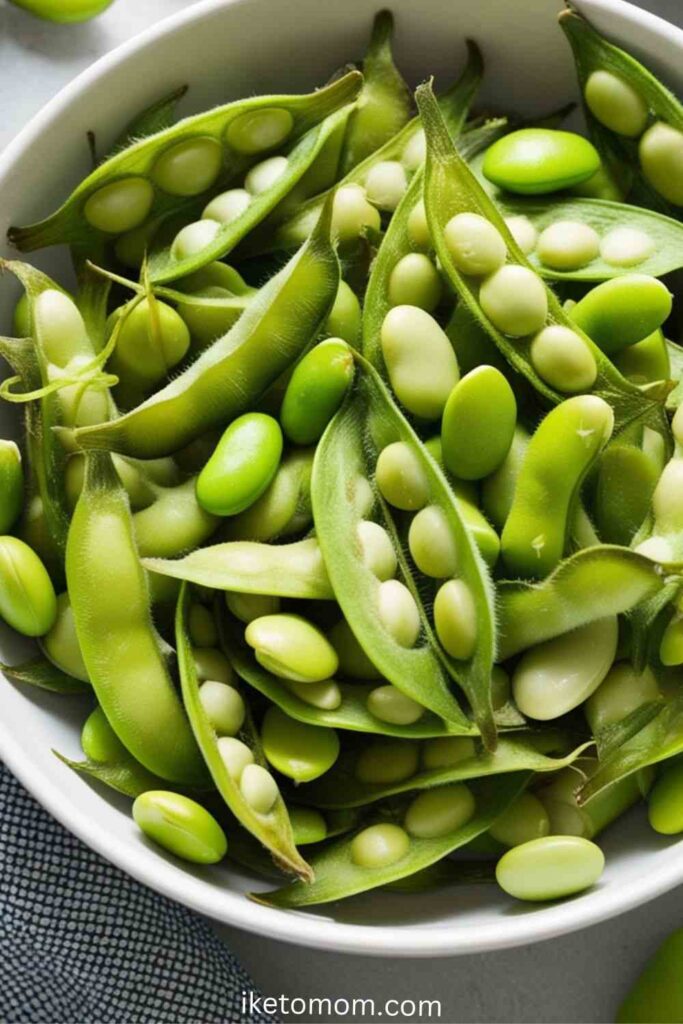High Protein Foods For Weight Loss play a crucial role in supporting weight loss efforts by helping to manage hunger, boost metabolism, and preserve muscle mass. Protein is a macronutrient that helps the body repair tissues, build muscle, and produce enzymes and hormones. When you’re trying to lose weight, including high-protein foods in your diet is essential, as they increase feelings of fullness, which can prevent overeating and help control calorie intake.
Moreover, protein has a higher thermic effect compared to fats and carbohydrates, meaning the body burns more calories during digestion and absorption of protein-rich foods. This process can help increase metabolism, making it easier to shed unwanted pounds. Additionally, a high-protein diet is important for maintaining muscle mass during weight loss, especially when combined with exercise, as it prevents muscle breakdown while promoting fat loss.
Incorporating high-protein foods into a balanced diet is key to achieving sustainable weight loss. These foods not only support fat loss but also provide vital nutrients to keep your body healthy and energized throughout the day. By prioritizing protein in your meals, you can enjoy long-term weight management and improved overall health.
High Protein Foods For Weight Loss
1. Chicken Breast
Chicken breast is one of the most popular high-protein foods, and for good reason. With 26g of protein per 3.5 oz (100g) serving, it’s an excellent source of lean protein that supports muscle growth and helps with weight loss. It contains only about 3g of fat and around 120 calories per serving, making it an ideal choice for those looking to maintain a calorie deficit while still meeting their protein needs.
Nutrition Information:
- 26g of protein per 3.5 oz (100g)
- 3g of fat
- 120 calories
Chicken breast is not only low in fat but also highly versatile, fitting seamlessly into a wide range of meals. Whether grilled, baked, roasted, or sautéed, it can be prepared in various ways to suit different tastes. You can easily pair it with vegetables, salads, or whole grains, making it a great addition to any healthy meal plan.
Health Benefits:
- High in Protein: Chicken breast is a complete source of protein, meaning it contains all nine essential amino acids that the body cannot produce on its own. This makes it a great food for building and repairing muscles, especially after workouts.
- Low in Fat: With minimal fat content, chicken breast is ideal for those aiming to reduce their fat intake while still consuming enough protein to support fat loss and muscle retention.
- Rich in Nutrients: It also contains important vitamins and minerals, including B vitamins like niacin and B6, which help with energy production and improve metabolism.
Thanks to its lean nature, chicken breast is one of the best foods for weight loss. Its high protein content helps keep you feeling fuller for longer, preventing unnecessary snacking and supporting your weight loss goals. Whether you’re prepping meals for the week or cooking a quick dinner, chicken breast is a nutritious, filling option that won’t derail your diet.
2. Turkey
Turkey is another excellent high-protein, low-fat food that is perfect for weight loss and muscle building. With 25g of protein per 3 oz (85g) serving and only 1g of fat, turkey is a lean meat that provides a substantial amount of protein without the extra calories from fat. It also contains about 120 calories per serving, making it an ideal choice for those looking to reduce their calorie intake while still meeting their protein requirements.
Nutrition Information:
- 25g of protein per 3 oz (85g)
- 1g of fat
- 120 calories
Turkey is incredibly versatile and can be used in a variety of dishes, from turkey burgers and meatballs to soups, salads, or even a simple roasted turkey breast. Its mild flavor and tender texture make it easy to incorporate into almost any meal.
Health Benefits:
- Lean Meat: Turkey is one of the leanest sources of animal protein, making it ideal for weight loss and maintaining a low-fat diet while still enjoying a protein-rich meal.
- Helps Build Muscle: As a high-protein food, turkey is great for promoting muscle growth and recovery, especially after exercise. It helps in muscle repair and supports muscle mass retention, which is vital during weight loss.
- Rich in Nutrients: Turkey provides essential vitamins and minerals, including B vitamins (especially niacin and B6), which support energy production, metabolism, and the proper functioning of the nervous system.
Incorporating turkey into your diet not only provides your body with high-quality protein but also supports overall health and wellness. Whether you enjoy it as a main dish or use it in sandwiches and wraps, turkey is a delicious and nutritious option for those seeking to lose weight and build muscle.
3. Salmon
Salmon is a nutrient-dense fish that provides an excellent source of protein while offering a variety of health benefits, particularly for heart health. A 3 oz (85g) serving of salmon contains 22g of protein and 10g of fat, with approximately 200 calories. While it has more fat than some leaner protein sources, the fat content is primarily heart-healthy omega-3 fatty acids, making it an essential part of a balanced diet.
Nutrition Information:
- 22g of protein per 3 oz (85g)
- 10g of fat
- 200 calories
Salmon is incredibly versatile and can be prepared in many ways, such as grilling, baking, or pan-searing, making it an easy addition to any meal. It pairs beautifully with vegetables, grains, or even salads for a balanced, nutrient-packed dish.
Health Benefits:
- Rich in Omega-3 Fatty Acids: One of the standout benefits of salmon is its high content of omega-3 fatty acids, which are crucial for reducing inflammation, supporting brain function, and improving heart health. Omega-3s have been linked to a lower risk of heart disease and may even reduce the risk of stroke.
- Good for Heart Health: The healthy fats in salmon can help reduce bad cholesterol levels, improve blood circulation, and promote overall cardiovascular health.
- High-Quality Protein: Salmon is a complete protein, providing all nine essential amino acids needed for muscle growth, repair, and recovery.
- Loaded with Nutrients: In addition to protein and omega-3s, salmon is rich in B vitamins (especially B12), vitamin D, and minerals such as selenium, all of which play important roles in metabolism, immune function, and overall well-being.
Including salmon in your diet not only helps you meet your protein needs but also supports long-term health, particularly heart health. Whether enjoyed as a main course or in salads, salmon is a delicious and nutritious choice for those looking to maintain a balanced, healthy diet.
4. Tuna
Tuna is a highly nutritious, low-calorie, and protein-packed food, making it an excellent choice for those looking to lose weight or maintain a healthy diet. With 22g of protein per 3 oz (85g) serving and just 1g of fat, tuna is an ideal option for those looking to boost their protein intake without consuming too many calories. At only 100 calories per serving, it is a great food for those aiming to maintain a calorie deficit for weight loss.
Nutrition Information:
- 22g of protein per 3 oz (85g)
- 1g of fat
- 100 calories
Tuna is also incredibly versatile and can be enjoyed in a variety of dishes. Whether served as a salad topping, mixed into a tuna salad, or used in sandwiches or wraps, tuna adds flavor and protein to any meal.
Health Benefits:
- Low-Calorie Option: With just 100 calories per 3 oz serving, tuna is perfect for those seeking to manage their calorie intake while still getting a significant amount of protein. It helps keep you full and satisfied without the excess calories that could hinder weight loss.
- Healthy Fats: Despite being low in fat, tuna contains healthy omega-3 fatty acids, which support heart health and reduce inflammation. These healthy fats also help improve brain function and can even assist in lowering cholesterol levels.
- Rich in Nutrients: Tuna is packed with essential vitamins and minerals, including B vitamins (particularly B12 and niacin) and selenium, which help support metabolism, energy production, and antioxidant defense.
Tuna is an easy, affordable, and nutritious protein source that supports weight loss goals and overall health. Whether you’re looking for a quick meal or adding variety to your diet, tuna is a simple and healthy choice.
5. Greek Yogurt (Non-Fat)
Non-fat Greek yogurt is a fantastic high-protein, low-calorie food that can be a great addition to your weight loss or muscle-building diet. It provides 10g of protein per 1/2 cup serving, with zero fat and only 60 calories, making it an excellent option for those looking to keep their calorie intake low while still benefiting from a protein boost. Its thick and creamy texture makes it a satisfying snack or a versatile ingredient in both savory and sweet dishes.
Nutrition Information:
- 10g of protein per 1/2 cup
- 0g of fat
- 60 calories
Greek yogurt is not only rich in protein but also packed with probiotics, which are beneficial bacteria that promote digestive health. These probiotics help balance gut flora, improve digestion, and boost immune function, making Greek yogurt a great choice for overall wellness.
Health Benefits:
- Probiotic-Rich: The probiotics in Greek yogurt help maintain a healthy balance of gut bacteria, improving digestion and enhancing immune system function. A healthy gut can also contribute to better nutrient absorption and weight management.
- Supports Gut Health: Consuming Greek yogurt regularly can improve gut health by promoting the growth of good bacteria while suppressing harmful bacteria, which may aid in reducing bloating and digestive discomfort.
- Low in Fat and Calories: With 0g of fat and just 60 calories per serving, non-fat Greek yogurt is a perfect food for those looking to maintain or lose weight without sacrificing protein. It helps curb hunger and keep you full between meals.
Greek yogurt is a versatile food that can be enjoyed on its own or incorporated into smoothies, parfaits, dressings, or baked goods. It’s a delicious and nutritious option to support your weight loss and digestive health goals.
6. Cottage Cheese (Low-Fat)
Low-fat cottage cheese is an excellent source of protein that helps support muscle repair and growth, making it a great choice for those looking to build or maintain muscle while keeping fat intake low. With 14g of protein per 1/2 cup serving, 2g of fat, and only 80 calories, it’s a nutrient-dense food that provides essential protein without the excess calories. Cottage cheese also provides a good balance of slow-digesting casein protein, which can help keep you feeling fuller for longer.
Nutrition Information:
- 14g of protein per 1/2 cup
- 2g of fat
- 80 calories
Cottage cheese is versatile and can be enjoyed as a snack, added to salads, or mixed with fruit or savory toppings for a satisfying meal. It’s also great for meal prepping due to its long shelf life.
Health Benefits:
- Supports Muscle Repair and Growth: Cottage cheese is rich in casein protein, which is a slow-digesting protein that helps in muscle recovery and reduces muscle breakdown. This makes it an ideal post-workout snack.
- Low in Fat and Calories: With just 2g of fat and 80 calories per 1/2 cup, low-fat cottage cheese is a great option for those who want to increase protein intake without adding extra fat or calories to their diet.
- Rich in Nutrients: Cottage cheese is also a good source of calcium, which is important for bone health, and other essential nutrients like phosphorus and B vitamins.
Cottage cheese is a versatile, high-protein food that fits well into any diet, especially if you’re focused on muscle building, weight management, or maintaining a healthy, balanced nutrition plan.
7. Eggs
Eggs are a highly nutritious, affordable, and versatile source of high-quality protein. Each egg contains 6g of protein, 5g of fat, and 70 calories, making it a balanced food choice that supports muscle growth and repair. They provide a complete protein, meaning they contain all nine essential amino acids that your body cannot produce on its own. Whether scrambled, boiled, poached, or baked, eggs are easy to prepare and can be included in a variety of meals.
Nutrition Information:
- 6g of protein per egg
- 5g of fat
- 70 calories
Eggs are not only rich in protein but also packed with essential vitamins and minerals, including vitamin B12, selenium, and choline, which play important roles in energy production, brain health, and immune function.
Health Benefits:
- Excellent Source of High-Quality Protein: Eggs provide a complete protein that supports muscle growth, repair, and maintenance, making them a perfect addition to any muscle-building or weight loss plan.
- Rich in Nutrients: Eggs contain vital nutrients such as vitamin B12, which supports nerve function and red blood cell production, and choline, which is essential for brain health.
- Promotes Satiety: The protein and fat content in eggs help keep you feeling full and satisfied for longer, making them an excellent option for managing hunger and reducing unnecessary snacking.
Eggs are incredibly versatile and can be enjoyed in a variety of ways, whether as a main dish, in salads, or as part of a healthy breakfast. They are a low-cost, high-protein food that can fit into nearly any diet plan.
8. Lentils
Lentils are a powerhouse of nutrition, offering an impressive 18g of protein per cup, along with just 0.5g of fat and 230 calories. These small legumes are an excellent plant-based protein source, making them ideal for vegetarians and vegans, or anyone looking to add more plant-based foods to their diet. Lentils are also rich in fiber, which supports digestive health and helps keep you feeling full longer, making them an excellent choice for those aiming to lose weight or maintain a healthy weight.
Nutrition Information:
- 18g of protein per cup
- 0.5g of fat
- 230 calories
Lentils come in various types, including brown, green, and red, and can be easily added to soups, stews, salads, and even veggie burgers. Their versatility and ability to absorb flavors make them an excellent addition to many dishes.
Health Benefits:
- Rich in Fiber: Lentils are an excellent source of dietary fiber, which promotes healthy digestion, regulates bowel movements, and helps prevent constipation. Fiber also aids in controlling blood sugar levels and lowering cholesterol.
- Supports Digestive Health: The high fiber content in lentils improves gut health by supporting beneficial bacteria and ensuring smooth digestion. They can also help in managing weight by reducing hunger and increasing satiety.
- Good Plant-Based Protein: With 18g of protein per cup, lentils are an excellent choice for those looking for plant-based protein sources that also provide essential nutrients like iron, folate, and magnesium.
Lentils are not only an affordable source of protein but also offer a wealth of other health benefits, making them a valuable addition to any diet focused on improving overall health and wellness.
9. Quinoa
Quinoa is a highly nutritious grain that offers 8g of protein per cup, 4g of fat, and 220 calories. What makes quinoa particularly special is that it is a complete protein, meaning it contains all nine essential amino acids that the body cannot produce on its own. This makes it an excellent choice for vegetarians, vegans, or anyone looking for a plant-based source of protein. In addition to its protein content, quinoa is rich in fiber, vitamins, and minerals, making it a well-rounded food for overall health.
Nutrition Information:
- 8g of protein per cup
- 4g of fat
- 220 calories
Quinoa is versatile and can be used in a variety of dishes, including salads, bowls, soups, or as a side dish to complement meals. It has a slightly nutty flavor and a fluffy texture when cooked, making it a delicious addition to both savory and sweet recipes.
Health Benefits:
- Complete Protein Source: Quinoa is one of the few plant-based foods that provides all nine essential amino acids, making it a valuable protein source for muscle repair and growth.
- Rich in Fiber: Quinoa is a good source of dietary fiber, which supports digestive health, helps regulate blood sugar, and promotes satiety, making it a great food for weight management.
- Packed with Nutrients: Quinoa is rich in magnesium, iron, and B vitamins, all of which play crucial roles in maintaining energy levels, supporting muscle function, and enhancing metabolism.
Quinoa is a fantastic, nutrient-dense option that can easily be incorporated into a variety of meals, providing both protein and important micronutrients. Its versatility and complete protein profile make it a great choice for those looking to improve their overall health and nutrition.
10. Edamame
Edamame, young soybeans harvested before they mature, are a nutritious, protein-packed snack or addition to any meal. With 17g of protein per cup, 8g of fat, and 190 calories, edamame provides a rich source of plant-based protein, making it an excellent choice for vegetarians, vegans, or anyone looking to reduce their intake of animal-based products. In addition to protein, edamame is also high in fiber, which helps with digestion, keeps you feeling full longer, and supports weight management.
Nutrition Information:
- 17g of protein per cup
- 8g of fat
- 190 calories
Edamame can be enjoyed on its own, tossed in salads, added to stir-fries, or blended into smoothies for a protein boost. Its mild, nutty flavor makes it a versatile ingredient in many dishes.
Health Benefits:
- Packed with Fiber: Edamame is rich in dietary fiber, which supports digestive health, regulates blood sugar levels, and promotes a feeling of fullness to help curb overeating.
- Plant-Based Protein: Edamame offers a complete plant-based protein, providing all nine essential amino acids. This makes it an ideal choice for muscle repair and growth, especially for those on a vegetarian or vegan diet.
- Supports Weight Management: The high fiber and protein content in edamame work together to help manage hunger and promote satiety, supporting healthy weight management.
Edamame is a delicious, healthy snack or meal addition that provides a powerful combination of protein and fiber, making it a great choice for anyone seeking to improve their diet and overall health.
FAQ
Why is protein important for weight loss?
Protein is essential for weight loss because it helps build and maintain muscle mass, increases feelings of fullness, and boosts metabolism. High-protein foods can prevent overeating and reduce hunger, making it easier to stick to a calorie-controlled diet.
How does protein help with fat loss?
Protein helps preserve muscle mass while promoting fat loss by increasing thermogenesis (calorie-burning) and boosting satiety. Consuming sufficient protein encourages the body to burn more fat while retaining lean muscle, which is crucial for a healthy metabolism.
What are the best high-protein foods for weight loss?
Some of the best high-protein foods for weight loss include chicken breast, turkey, fish like salmon and tuna, eggs, Greek yogurt, lentils, quinoa, cottage cheese, edamame, and tofu. These foods are rich in protein but low in calories and fat, making them perfect for weight loss.
Can plant-based proteins help with weight loss?
Yes, plant-based proteins like lentils, quinoa, edamame, tofu, and beans can be just as effective for weight loss as animal proteins. These sources of protein also provide additional nutrients like fiber, which helps with digestion and keeps you fuller for longer.
How much protein should I eat for weight loss?
The recommended daily intake of protein varies depending on your activity level, age, and goals. However, a general guideline is to consume about 1.6–2.2 grams of protein per kilogram of body weight per day to support weight loss and muscle maintenance.

I’m Priscilla Swahn, a registered dietitian with a master’s degree in nutritional sciences. With over a decade of experience in holistic nutrition, I specialize in creating delicious keto recipes to help you enjoy a healthy lifestyle. On iKetoMom, you’ll find a variety of recipes for every meal—hearty breakfasts, satisfying lunches, mouthwatering dinners, indulgent desserts, and refreshing drinks. My recipes make keto living easy and enjoyable for the whole family. Featured in EatingWell and MindBodyGreen, I also collaborate with health centers and corporate companies to share my expertise. Join me and discover the joy of keto cooking!

